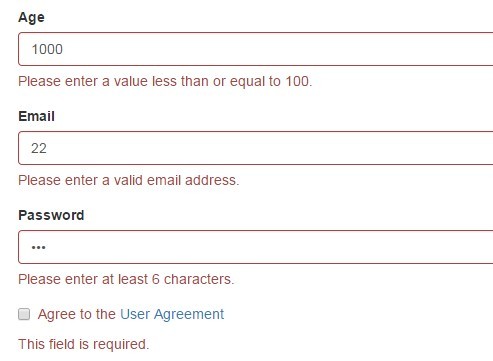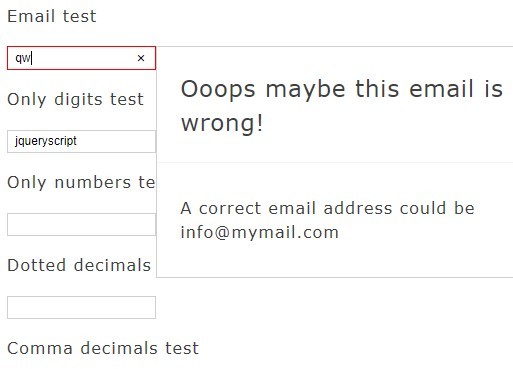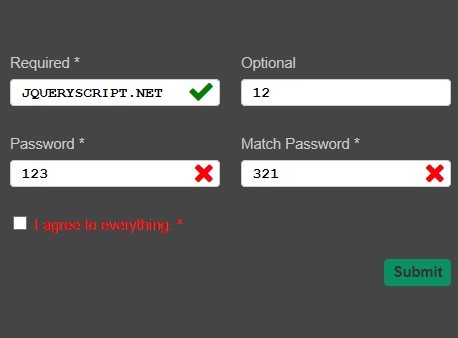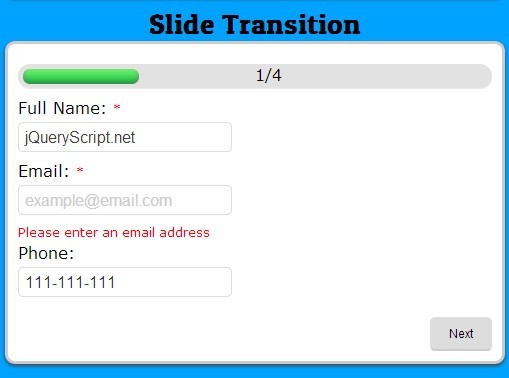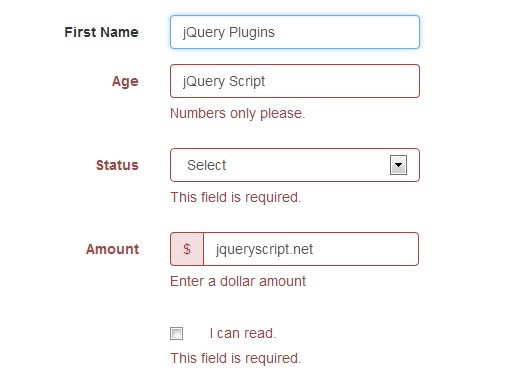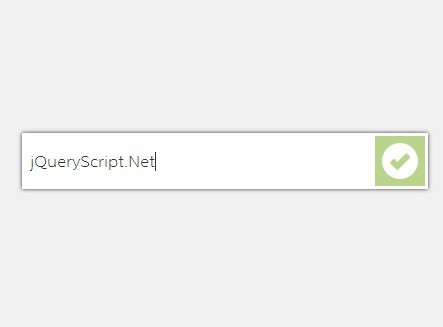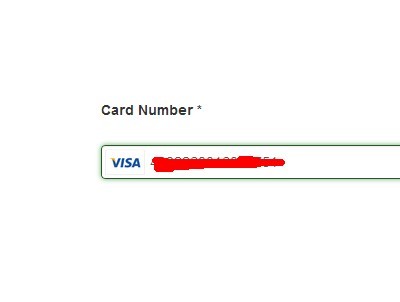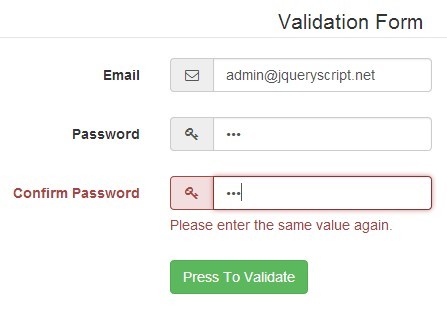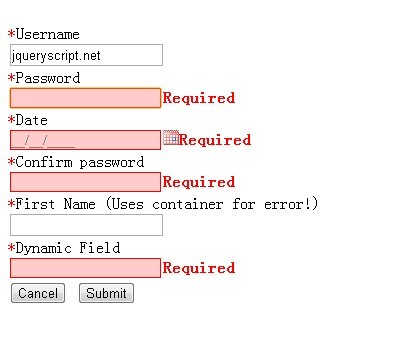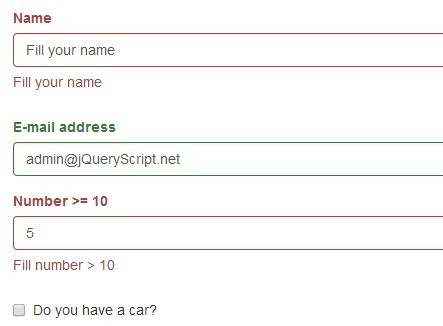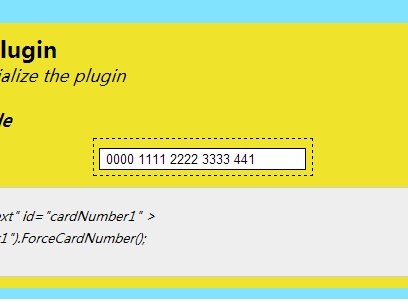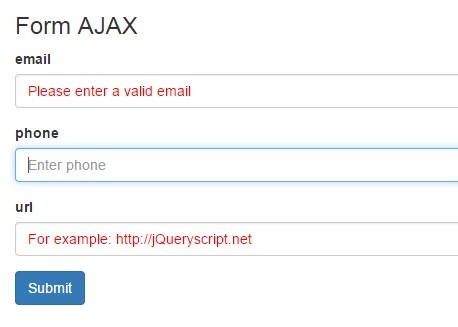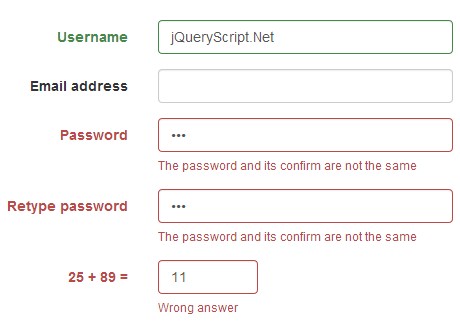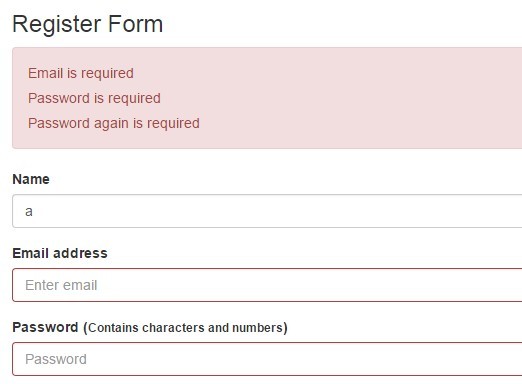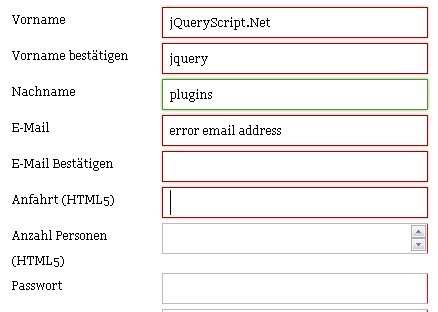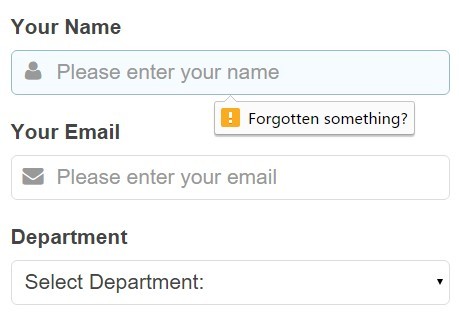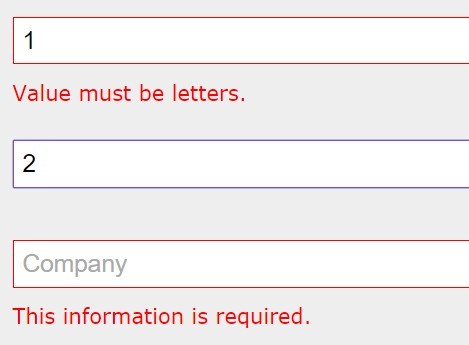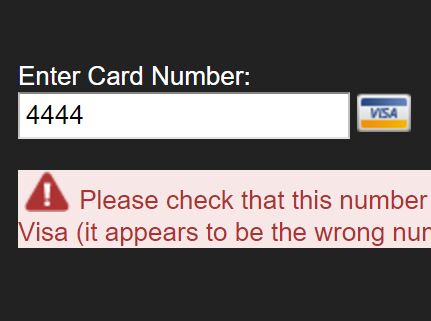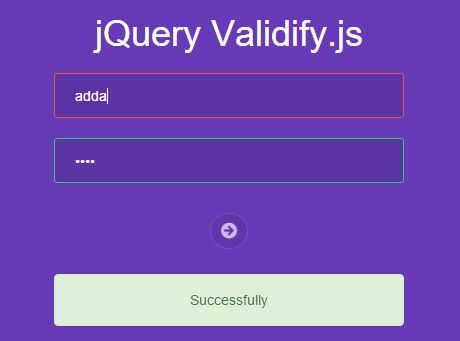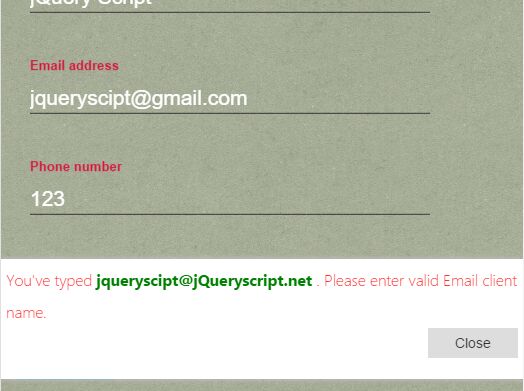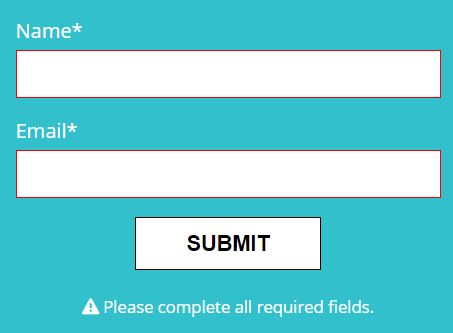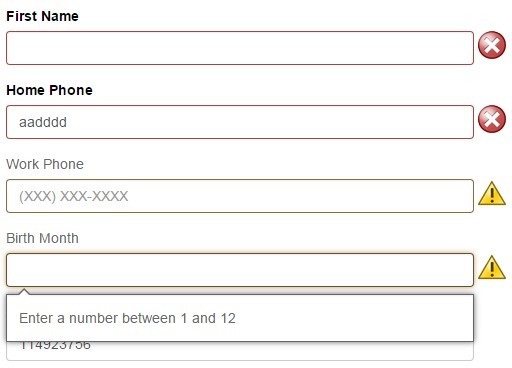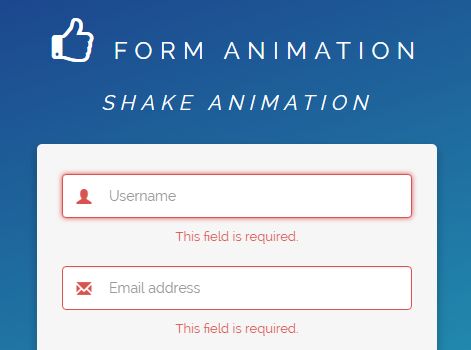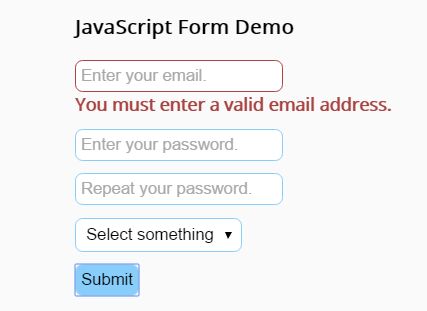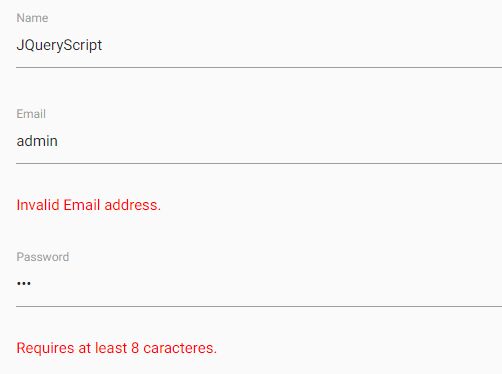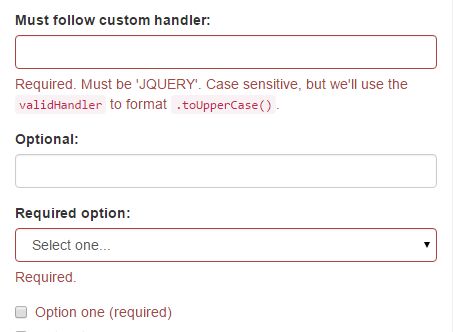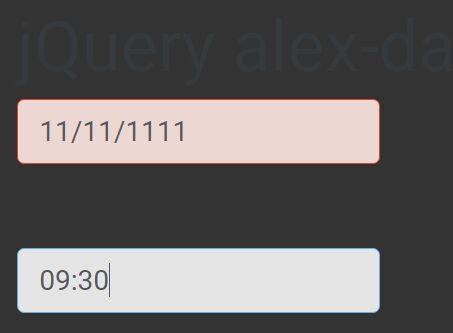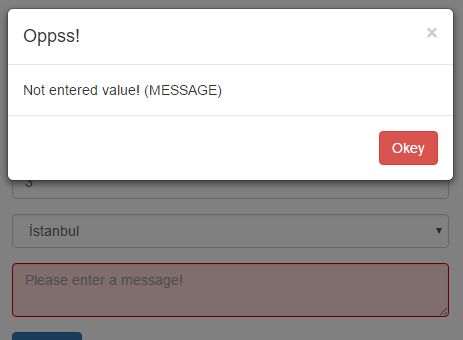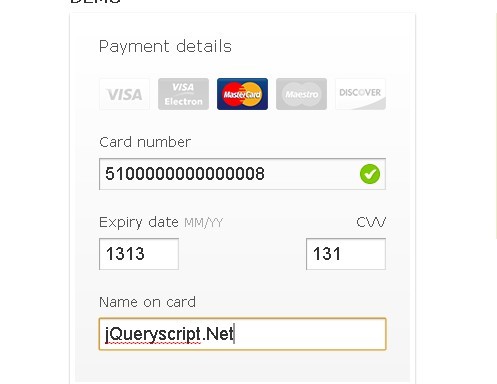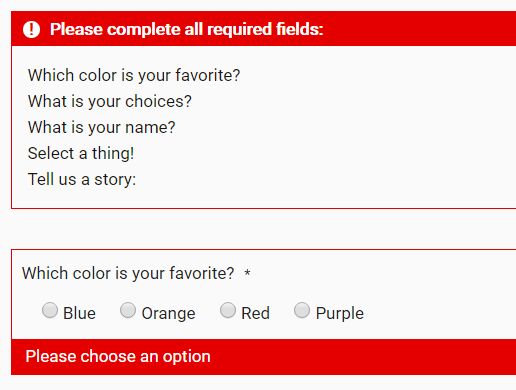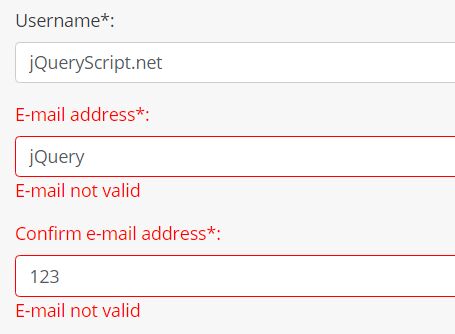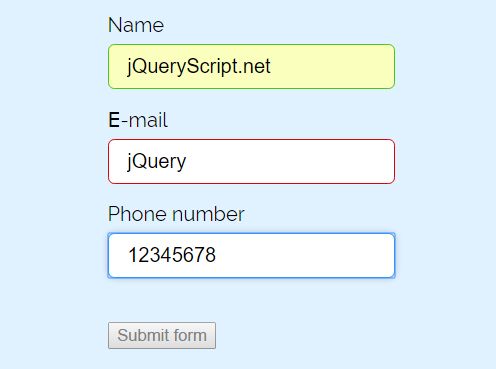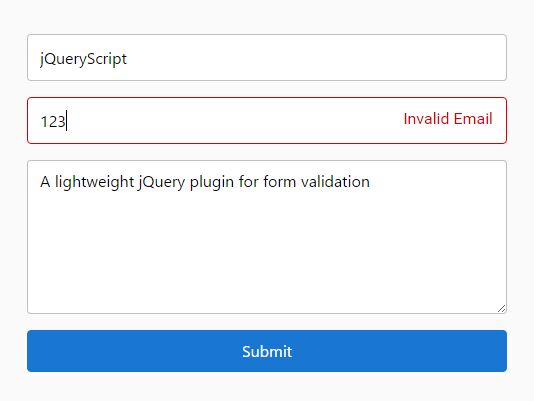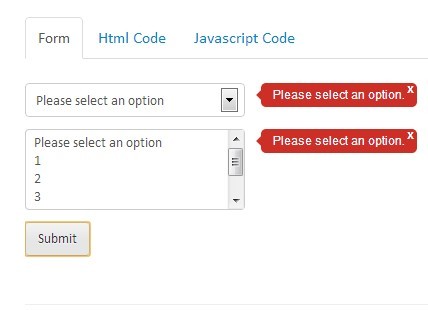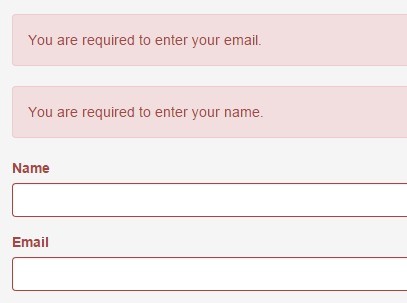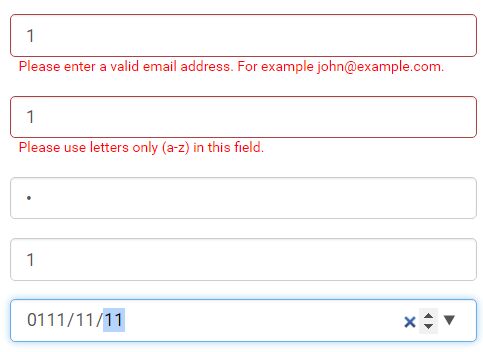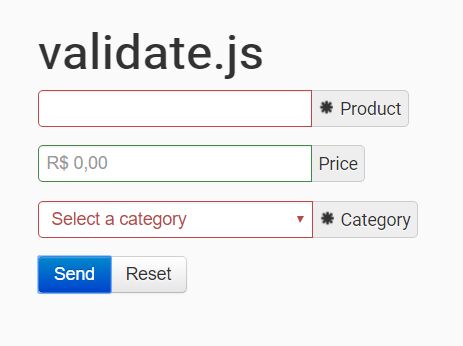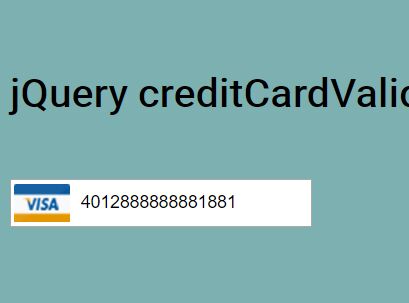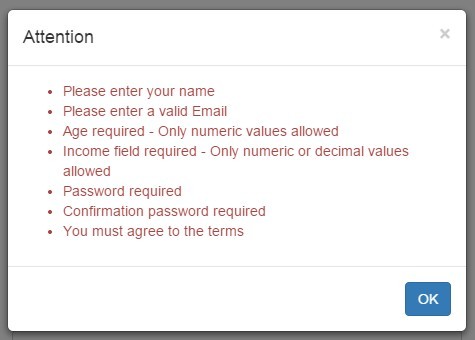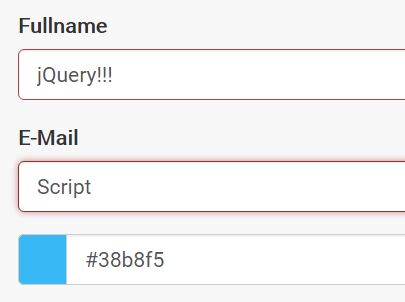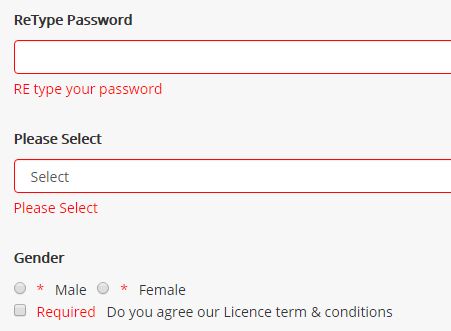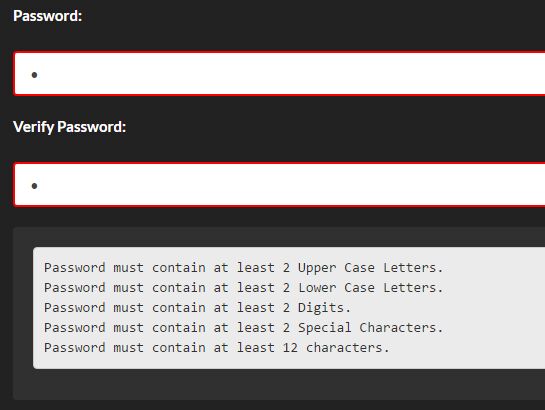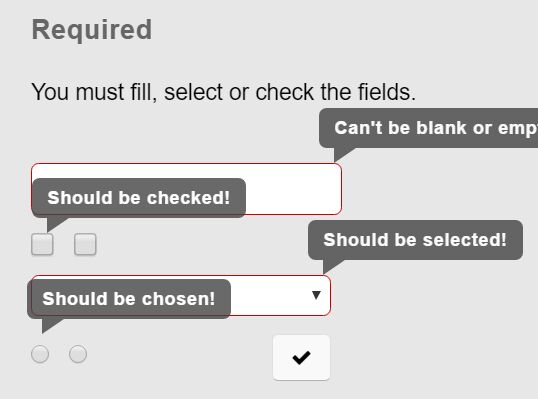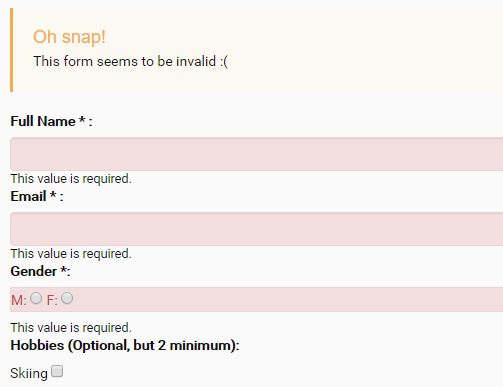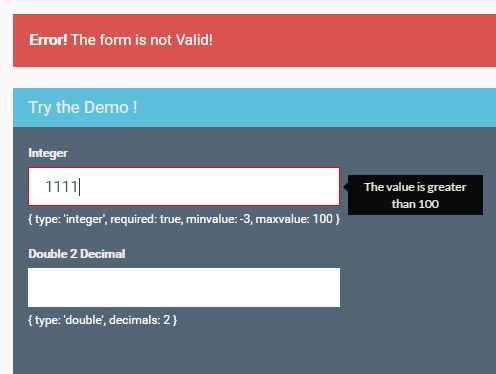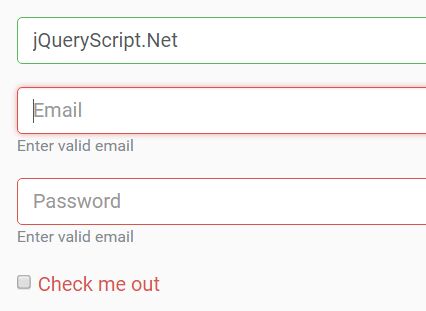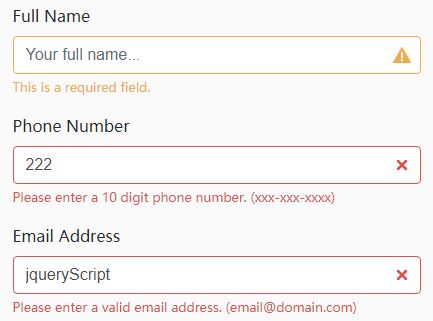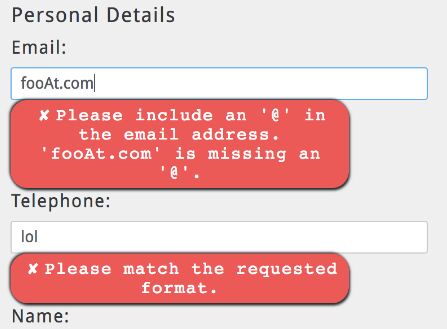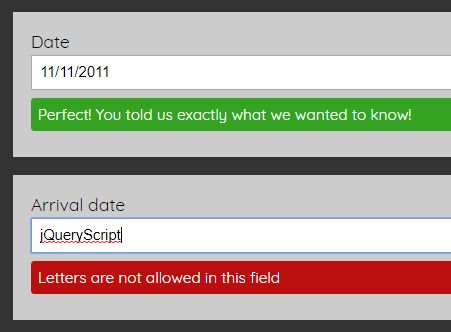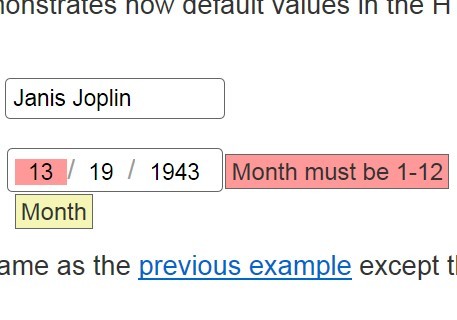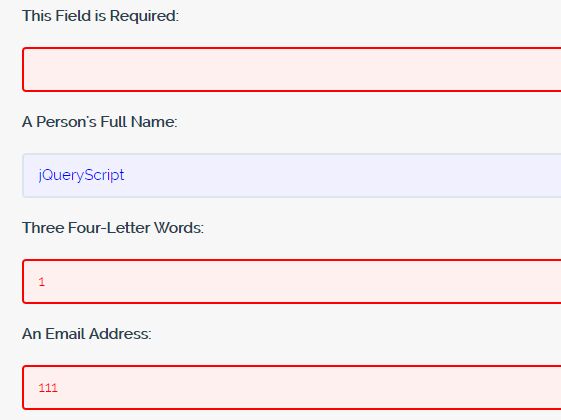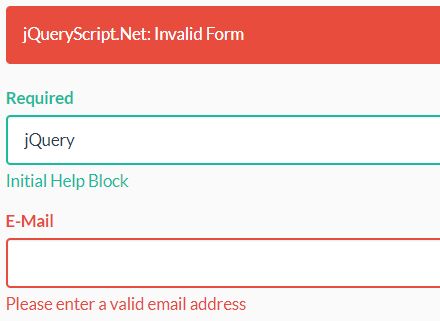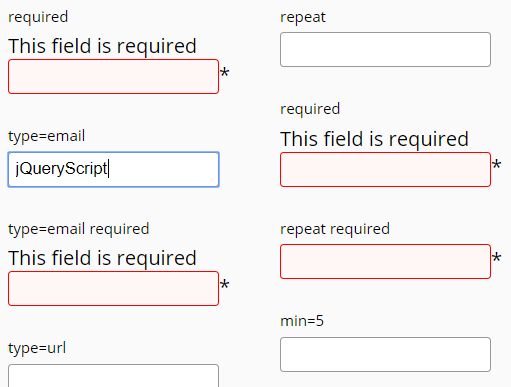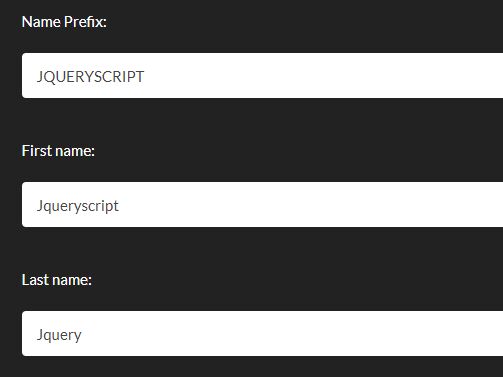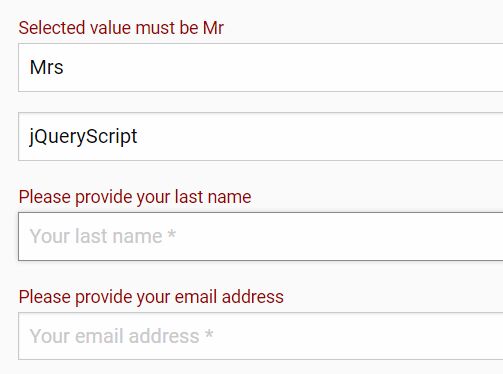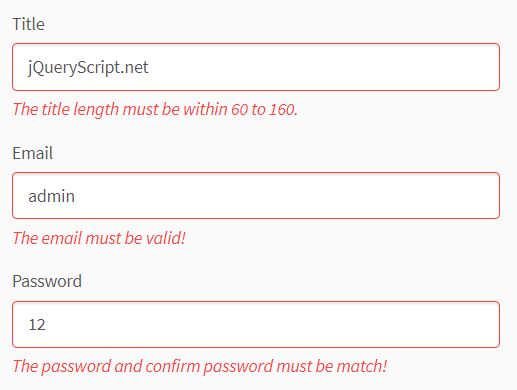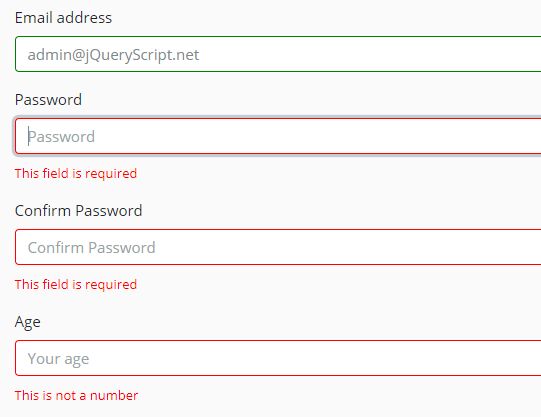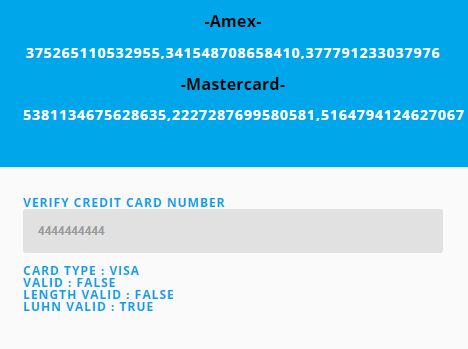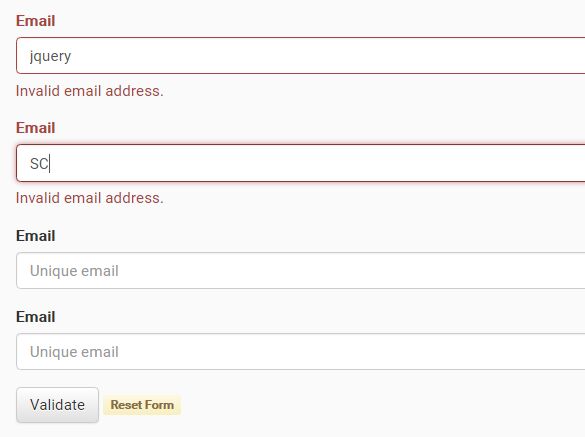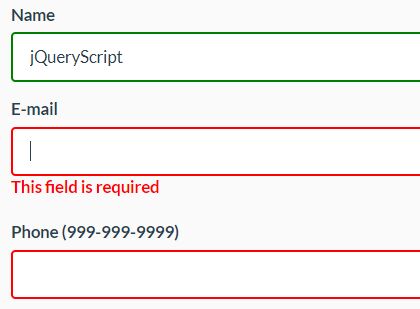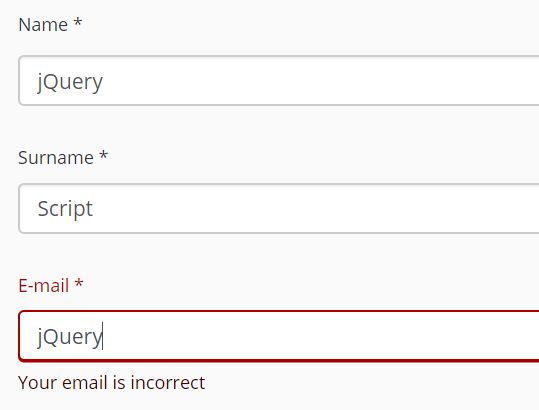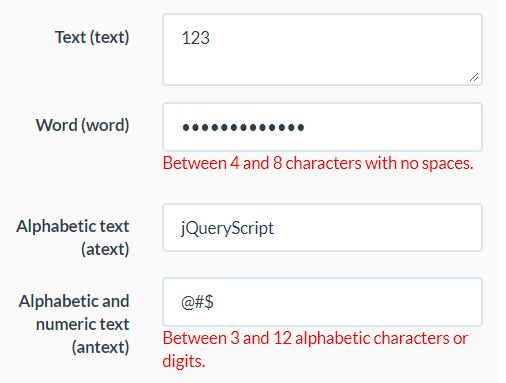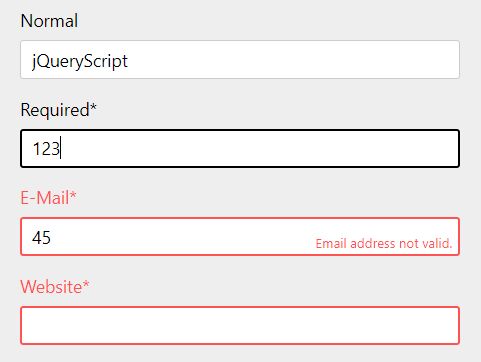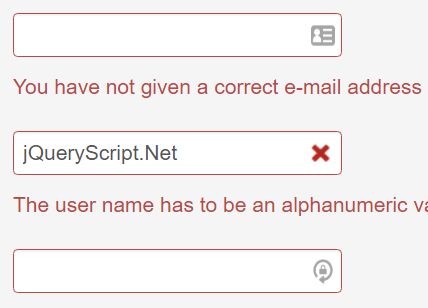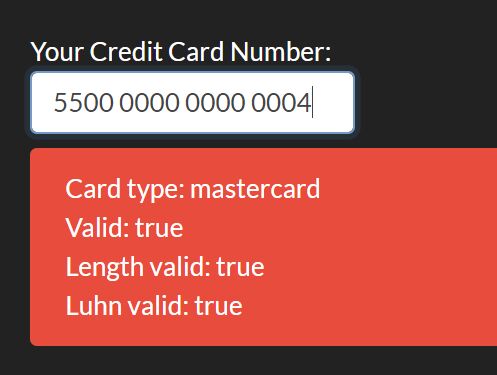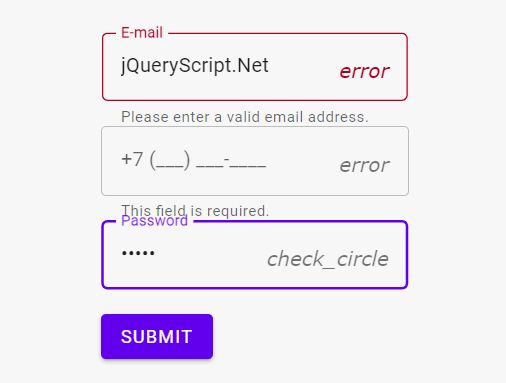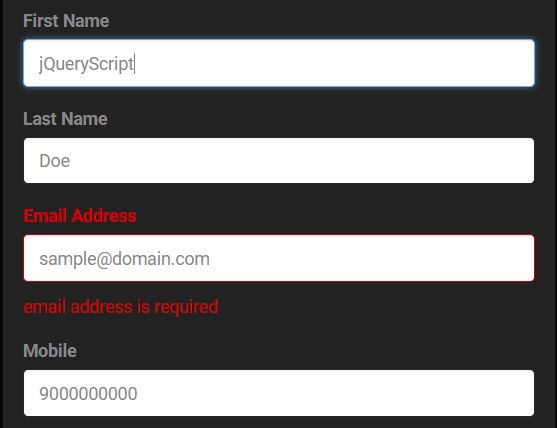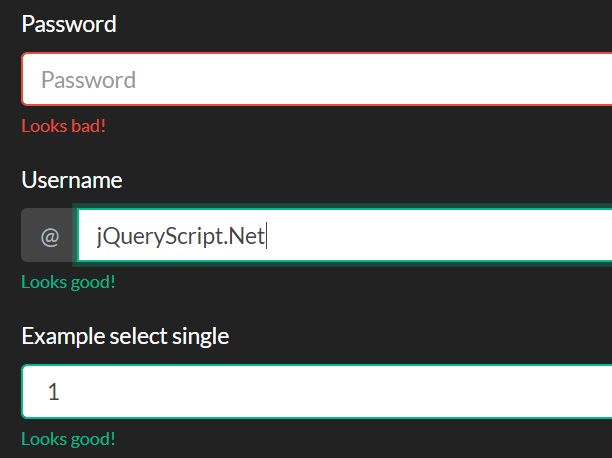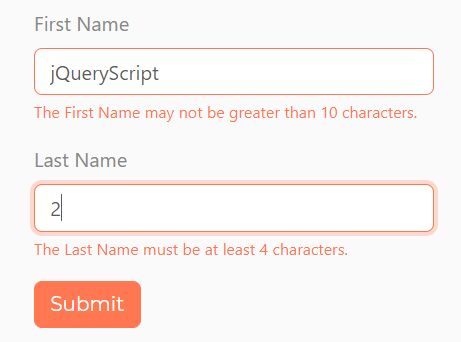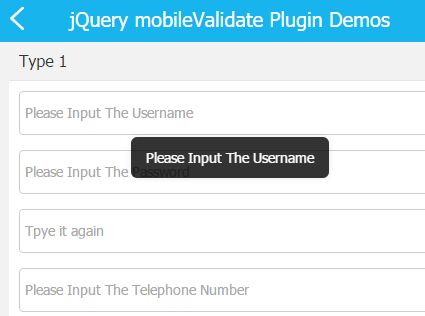Validator
A simple jQuery form validation plugin.
Table of contents
- Features
- Main
- Getting started
- Rules
- Messages
- Validators
- Options
- Methods
- Events
- No conflict
- Browser support
- Versioning
- License
Features
- Supports common rules
- Supports custom rules
- Supports custom messages
- Supports custom validators
Main
dist/ ├── validator.js (13 KB) └── validator.min.js ( 7 KB) Getting started
Quick start
Three quick start options are available:
- Download the latest release.
- Clone the repository:
git clone https://github.com/fengyuanchen/validator.git. - Install with NPM:
npm install @fengyuanchen/validator.
Installation
Include files:
<script src="/path/to/jquery.js"></script><!-- jQuery is required --> <script src="/path/to/validator.js"></script>Usage
Initialize with $.fn.validator method.
<input type="text" required>$('input').validator({ rules: { maxlength: 3 } }); $('input').validator('isValid'); // false (required) $('input').val('abc').validator('isValid'); // true $('input').val('abcde').validator('isValid'); // false (too long)Rules
number
- Type:
Boolean
The enter value must be a valid number (only digits).
<input type="number">Or
$('input').validator({ rules: { number: true } });- Type:
Boolean
The enter value must be a valid email.
<input type="email">Or
$('input').validator({ rules: { email: true } });url
- Type:
Boolean
The enter value must be a valid URL.
<input type="url">Or
$('input').validator({ rules: { url: true } });date
- Type:
Boolean
The enter value must be a valid date.
<input type="date">Or
$('input').validator({ rules: { date: true } });required
- Type:
Boolean
The enter value must be not empty.
<input type="text" required>Or
$('input').validator({ rules: { required: true } });min
- Type:
Number
The enter number must greater than or equal to this.
Usage:
<input type="number" min="1">Or
$('input').validator({ rules: { number: true, min: 1 } });max
- Type:
Number
The enter number must less than or equal to this.
Usage:
<input type="number" max="100">Or
$('input').validator({ rules: { number: true, max: 100 } });range
- Type:
Array
The enter number must between this[0] and this[1].
Usage:
<input type="number" range="1,100">Or
$('input').validator({ rules: { number: true, range: [1, 100] } });minlength
- Type:
Number
The enter characters' length must greater than or equal to this.
Usage:
<input type="text" minlength="1">Or
$('input').validator({ rules: { minlength: 1 } });maxlength
- Type:
Number
The enter characters' length must less than or equal to this value.
Usage:
<input type="text" maxlength="100">Or
$('input').validator({ rules: { maxlength: 100 } });rangelength
- Type:
Array
The enter characters' length must between this[0] and this[1].
Usage:
<input type="text" rangelength="1,100">Or
$('input').validator({ rules: { rangelength: [1, 100] } });pattern
- Type:
RegExp
The enter value must match the pattern.
Usage:
<input type="text" pattern="j(ava)?s(cript)?">Or
$('input').validator({ rules: { pattern: /j(ava)?s(cript)?/ } });equalto
- Type:
String(jQuery selector)
The enter value must equal to the target element's value.
Usage:
<input id="password1" type="password" value="123456"> <input id="password2" type="password" equalto="#password1">Or
$('#password2').validator({ rules: { equalto: '#password1' } });(custom rule)
- Type:
Object
A custom rule requires a message and a validator.
$('#password2').validator({ rules: { exampleCustomRule: { message: 'Please enter at least one "@" character.', validator: function (value) { return value.indexOf('@') > -1; } } } });Messages
Changes the global default messages with $.fn.validator.setMessages(options).
// i18n/validator.zh-CN.js $.fn.validator.setMessages({ number: '请输入有效的数字 (仅限数字)。', email: '请输入有效的电子邮件地址。', url: '请输入有效的网址。', date: '请输入有效的日期。', required: '这是必填字段。', max: '请输入一个不大于 [0] 的数值。', min: '请输入一个不小于 [0] 的数值。', maxlength: '最多 [0] 个字。', minlength: '最少 [0] 个字。', pattern: '请输入匹配的值。', range: '请输入 [0] 至 [1] 之间的数值。', rangelength: '请输入长度为 [0] 至 [1] 之间的字符串。', equalto: '请再次输入相同值。' });Validators
Changes the global default validators with $.fn.validator.setValidators(options).
Options
Sets options with $().validator(options). Changes the global default options with $.fn.validator.setDefaults(options).
rules
- Type:
Object - Default:
null
Add validation rules.
$('input').validator({ rules: { required: true } });trigger
- Type:
String(event name) - Default:
''
The event(s) which triggers validating
$('input').validator({ trigger: 'change' });filter
- Type:
Function - Default:
null
Filter the value before validate
$('input').validator({ filter: function (value) { return $.trim(value); } });success
- Type:
Function - Default:
null
A shortcut of the "success.validator" event.
error
- Type:
Function - Default:
null
A shortcut of the "error.validator" event.
Methods
General usage:
$().validator('method', argument1, , argument2, ..., argumentN)update()
Update rule(s) from element attributes to validator instance.
<input type="number" min="1">var $input = $('input'); var instance; // Initialize $input.validator(); // Change attribute $input.attr('max', 100); // Update rule $input.validator('update');addRule(name, value)
- name:
- Type:
StringorObject - Rule name or rules object.
- Type:
- value:
- This is optional when the "name" parameter is an object.
Add new rule(s).
// Supported rule $().validator('addRule', 'required', true); // Custom rule $().validator('addRule', 'heart', { message: 'Don\'t lose the ♥?', validator: function (value) { return /\u2665/.test(value); } });removeRule(name)
- name:
- Type:
StringorObject - Rule name or rules object.
- Type:
Remove existed rule(s);
$().validator('removeRule', 'required'); $().validator('removeRule', { required: false });addValidator(name, value)
- name:
- Type:
StringorObject - Validator name or validators object.
- Type:
- value:
- Type:
Function - Must return a boolean value. This is optional when the "name" parameter is an object.
- Type:
Add new validator(s) to instance;
$().validator('addValidator', 'required', function (value) { return !!value; }); $().validator('addValidator', { required: function (value) { return $.trim(value) !== ''; } });removeValidator(name)
- name:
- Type:
StringorObject - Validator name or validators object.
- Type:
Remove validator(s) which was(were) added by addValidator;
$().validator('removeValidator', 'required'); $().validator('removeValidator', { required: null });isValid()
- (return value)
- Type:
Boolean
Start a validation and return the result.
isInvalid()
- (return value)
- Type:
Boolean
Start a validation and return the reversed result.
v()
A shortcut of isValid method, means "√".
x()
A shortcut of isInvalid method, means "×".
destroy()
Destroy the validator and remove the instance from target element.
Events
success.validator
This event fires when a validation is passed.
error.validator
This event fires when a validation is failed.
No conflict
If you have to use other plugin with the same namespace, just call the $.fn.validator.noConflict method to revert to it.
<script src="other-plugin.js"></script> <script src="validator.js"></script> <script> $.fn.validator.noConflict(); // Code that uses other plugin's "$().validator" can follow here. </script>Browser Support
- Chrome (latest)
- Firefox (latest)
- Safari (latest)
- Opera (latest)
- Edge (latest)
- Internet Explorer 8+
As a jQuery plugin, you also need to see the jQuery Browser Support.
Versioning
Maintained under the Semantic Versioning guidelines.
